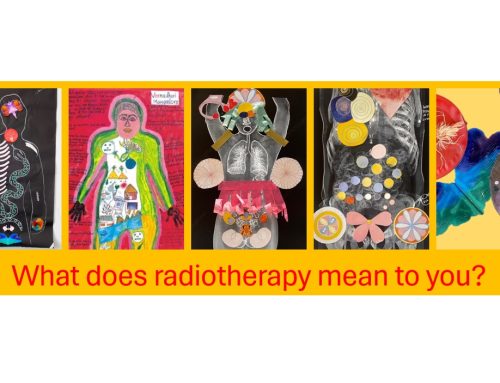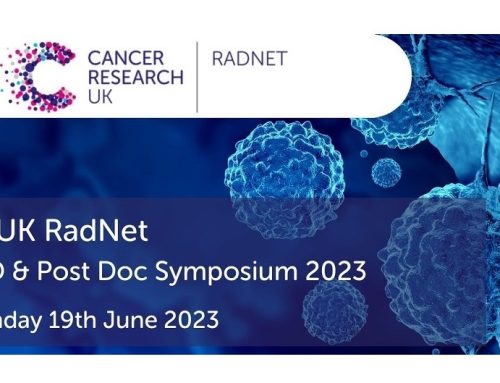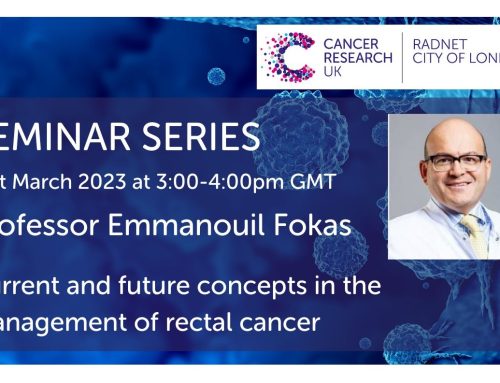
CRUK RadNet City of London Seminar Series #18
‘Predicting patient-specific therapeutic responses from genome-scale models of redox metabolism’
Friday, 27th January 2023 at 3:00 – 4:00pm GMT
Join the Zoom Seminar: https://ucl.zoom.us/j/96159011871?pwd=c2YrM0hWb08rL3dzUjJDZXJBWm9adz09
Meeting ID: 961 5901 1871
Passcode: 045331
Hosted by Dr Jamie Dean, Senior Research Fellow at UCL, we warmly welcome Dr Melissa Kemp, Georgia Institute of Technology & Emory University, to join us and deliver a seminar talk on ‘Predicting patient-specific therapeutic responses from genome-scale models of redox metabolism’
Abstract: Despite the acknowledged role of tumor metabolism in radiation response, metabolomics data is rarely collected in large multi-omics initiatives such as The Cancer Genome Atlas (TCGA), presenting challenges to identify systems-level alterations in redox metabolism which confer resistance to radiation therapy. We developed a bioinformatics pipeline for integrating multi-omics data into personalized genome-scale flux balance analysis models of 716 radiation-sensitive and 199 radiation-resistant tumors. These models collectively predicted that radiation resistant tumors reroute metabolic flux to increase mitochondrial NADPH stores and reactive oxygen species scavenging. Simulated genome-wide knockout screens agreed with experimental siRNA gene knockdowns in matched radiation-sensitive and -resistant cancer cell lines, revealing gene targets involved in mitochondrial NADPH production, central carbon metabolism, and folate metabolism that allow for selective inhibition of glutathione production and hydrogen peroxide clearance in radiation-resistant cancers. This systems approach represents a significant advancement in developing quantitative genome-scale models of redox metabolism and identifying personalized metabolic targets for improving radiation sensitivity in individual cancer patients. Furthermore, we have used this methodology to predict novel metabolic biomarkers that differentiates radiation-sensitive and -resistant tumors. These metabolites have been experimentally validated and integrated with other multi-omics datasets into machine learning classifiers for radiation response.
About our speaker:
Melissa Lambeth Kemp received her B.S. in Nuclear Engineering with a minor in Biomedical Engineering from Massachusetts Institute of Technology in 1997 and her Ph.D. in Bioengineering from University of Washington in 2003. Dr. Kemp joined the faculty at Georgia Tech in 2006 after completing postdoctoral training at MIT. She is currently the Carol Ann & David D. Flanagan Professor in the joint Wallace H. Coulter Department of Biomedical Engineering between Georgia Tech and Emory University. Her research focuses on the development of computational systems biology methods to investigate two overarching themes in cancer, immunology, and regenerative medicine applications: i) the role of cellular redox metabolism in influencing information processing and cell fate decisions; and ii) modes of communication that drive self-organization in multicellular engineered living systems.
Dr. Kemp currently co-leads the research thrust of Cell-Omics for the NSF Engineering Research Center in Cell Manufacturing Technologies and is the former co-chair of the NCI Cancer Systems Biology Consortium. Dr. Kemp’s career honors include a Whitaker Graduate Fellowship, Merck/CSBi postdoctoral fellowship, Georgia Cancer Coalition Distinguished Scholar, NIH New Innovator Award, and the CSB2 Prize for Innovative Measurement Methods from the Council for Systems Biology in Boston.





Leave A Comment